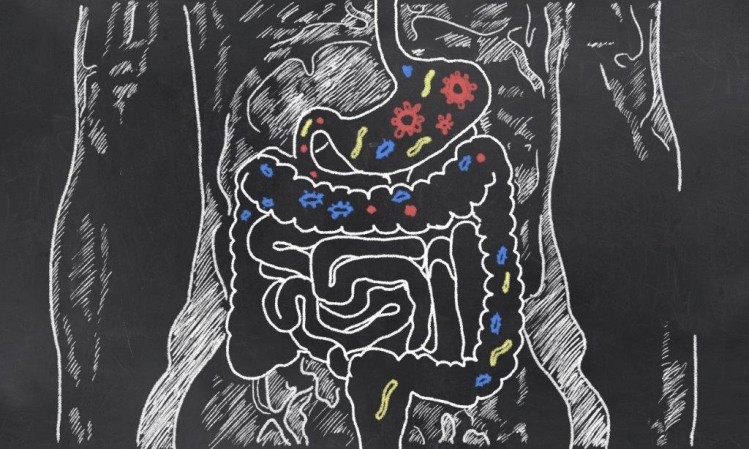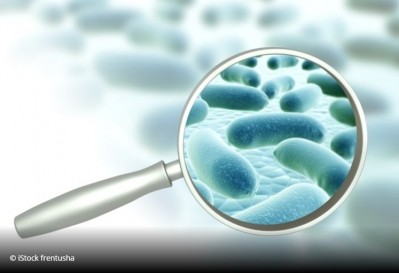Chr-Hansen funded study points to Bifidobacteria’s role in aspirin-induced ulcers

A collaboration involving Chr. Hansen and Cork’s APC Microbiome Ireland draws upon previous findings that show bifidobacteria produces a protein that promotes healing of the intestinal lining.
This latest study provides photographic evidence in humans that ulcers triggered by the painkiller can be alleviated by bifidobacteria - one of the most predominant faecal bacteria in bottle-fed and breast-fed groups of new-born infants.
“Although prior studies have described stomach damage from aspirin and non-steroidal anti-inflammatory drugs, this is, to the best of our knowledge, the first trial to record a detailed time-course of aspirin-induced, small-intestinal damage,” says Dr Martin Buckley, lead investigator and senior lecturer at University College Cork.
“Even more impressive was the subsequent reversal of the damage by the bifidobacterium that could be added as a natural supplement to the diet of patients on long-tern aspirin”
Aspirin’s benefits
Aspirin remains one of the most commonly used nonsteroidal anti-inflammatory drugs (NSAIDs) to address a range of analgesic, inflammatory, and cardiovascular conditions.
However, its chronic use is associated with adverse effects, including small-intestinal mucosal lesions and ulcers, perforations, major haemorrhage, and, in rare instances, death.
NSAID-induced damage appears much more complex than previously thought and has been shown to involve microbiota composition.
Along with researchers from Mercy University Hospital in Cork, and Atlantia Food Clinical Trials, the team began by recruiting 75 healthy volunteers, aged between 18 and 40 years.
The volunteers were then given the NSAID acetylsalicylic acid (ASA or aspirin) at a dosage of 300 milligrams (mg) daily for six weeks.
The participants were randomly assigned (1:1) to groups given oral capsules of Bifidobacterium breve (Bif195) (less than 5x1010 colony-forming units) or placebo daily for eight weeks.
Small-intestinal damage was analysed by serial video capsule endoscopy (VCE) six times during the study’s duration.
Study findings
Using the Lewis score to assess the area under the curve (AUC) for intestinal damage, the research team found the AUC for Lewis score to be significantly lower in the Bif195 group (3040 units) when compared to the placebo group (4351).
The AUC for ulcer number was significantly lower in the Bif195 group (50.4 arbitrary units) than in the placebo group (75.2 arbitrary units).
Further findings reveal twelve adverse events were reported from the Bif195 group and 20 from the placebo group with none of the events determined to be related to Bif195 intake.
“The efficacy of Bif195 in NSAID-associated small intestine injury may be partly explained by the difference in pathogenesis between NSAID-associated small-intestine injury and NSAID-associated gastropathy,” the team says.
Inconsistent evidence
“Whereas acid and pepsin are the principal luminal aggressors in NSAID-associated gastropathy, bile and, indeed, bacteria are the luminal factors in NSAID-associated enteropathy.”
The team also point out that while preclinical studies in animals have been encouraging, previous trials in humans using probiotics in NSAID-related intestinal conditions have proved inconsistent.
Certain bifidobacteria strains are known to strengthen the intestinal epithelium layer, modulate the local immunoinflammatory response, and compete with potential bacterial aggressors, the study mentions.
Commenting on the trial’s limitations in terms of translation to a real-life clinical setting, the team highlight the higher ASA dose used than is commonly prescribed for primary cardiovascular disease prevention.
However, the 300mg dose is readily available for over-the-counter use. In addition, a recent report suggests that the current cardioprotective dosage of ASA may be insufficient and recommended doses should be based on a milligram per kilogram (mg/kg) basis.
Source: Gastroenterology
Published online: doi.org/10.1053/j.gastro.2019.05.008
“Bifidobacterium breve Bif195 protects against small-intestinal damage caused by acetylsalicyclic acid in healthy volunteers”
Authors: Brynjulf Mortensesn et al.















